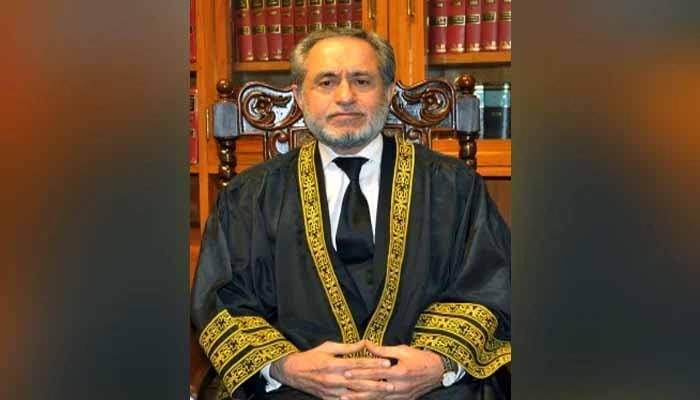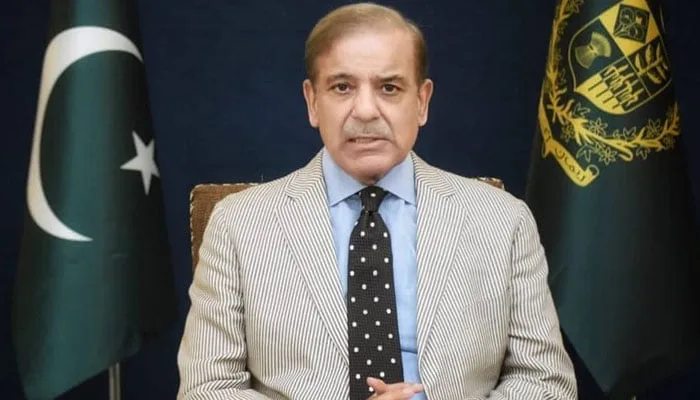The Supreme Court of Pakistan is examining a critical legal matter concerning the trial of civilians in military courts, raising profound questions about the constitutional role and scope of the armed forces in civilian judicial matters. A Constitution Bench, led by Justice Aminuddin, heard intra-court appeals challenging military court decisions, sparking a debate on the balance between national security, constitutional law, and individual rights.
Army’s Discipline and Constitutional Role
Justice Jamal Mandokhel highlighted the primary role of the army as defenders of the nation’s borders, emphasizing its discipline and operational integrity. Citing historical examples, Justice Mandokhel referenced Hazrat Umar (RA), who separated the army from the general populace to maintain its discipline.
He remarked, “The mention of army laws in Article 8 of the Constitution pertains to the military’s internal discipline. The army’s discipline is intact, and may God sustain it. The armed forces are entrusted with guarding the country’s borders.”
These remarks set the stage for discussions on whether military courts can extend their jurisdiction over civilians, especially in cases unrelated to the traditional duties of the armed forces.
Civilian Trials in Military Courts: A Contested Issue
One of the central questions raised by the bench was how a civilian, who is not part of the armed forces, can be subjected to military court discipline. Justice Mandokhel pointed out that civilian cases, such as those involving the murder of a soldier out of personal enmity, are typically tried in general courts.
He further questioned whether crimes like attacking military installations fall exclusively under the military’s jurisdiction or if they should be prosecuted under civilian anti-terrorism laws. This distinction is critical in determining whether the use of military courts for civilian trials is justified or an overreach.
Differentiating Crimes Against the Military
Justice Musarrat Hilali underscored the need to differentiate between crimes motivated by personal grievances and acts targeting the state. She noted that “killing a soldier out of personal enmity and attacking the military in the style of Balochistan insurgency are fundamentally different offenses.”
Her remarks point to the nuanced nature of civilian-military interactions and the need for clear legal boundaries. The judiciary’s focus on maintaining this balance reflects its responsibility to uphold the Constitution while addressing the unique challenges of national security.
Call for Clarity on Military Court Rules
Justice Mazhar Ali Akbar Naqvi emphasized the need for transparency in the rules governing military court proceedings. He requested detailed information on the regulations under which these courts operate, signaling the judiciary’s intent to scrutinize the legal framework supporting military trials.
Justice Musarrat Hilali also directed the government’s legal team to provide comprehensive details of First Information Reports (FIRs) filed on May 9 and 10, two dates linked to high-profile incidents of unrest and violence targeting military installations. These details are expected to shed light on whether the actions in question fall under the purview of military courts or civilian anti-terrorism laws.
Broader Implications for Justice and Governance
The Supreme Court’s deliberations come at a time when the relationship between civilian governance and military oversight is under heightened scrutiny. The judiciary’s role in adjudicating these cases extends beyond the immediate legal context, touching on broader issues of governance, accountability, and the rule of law.
By questioning the trial of civilians in military courts, the bench is exploring the limits of military jurisdiction and its implications for democratic principles. This case has far-reaching consequences for Pakistan’s legal and political landscape, as it tests the boundaries between military authority and civilian judicial independence.
Adjournment and Next Steps
The Constitution Bench has adjourned further hearings until Friday, with additional details expected from the government’s legal team. The provision of FIRs and clarification on military court rules will be pivotal in shaping the court’s decision.
The outcome of this case could set a precedent for future interactions between civilian law and military authority, reinforcing or redefining the balance of power between these two pillars of the state.
The Supreme Court’s ongoing examination of military court trials for civilians is a landmark case that raises essential questions about the role of the armed forces in Pakistan’s judicial system. With key justices emphasizing the importance of constitutional boundaries and the differentiation of crimes, the court’s decision will likely have a lasting impact on the country’s legal framework.
The judiciary’s insistence on transparency, fairness, and adherence to the Constitution underscores its commitment to upholding the rule of law. As the nation awaits the next hearing, this case remains a critical focal point for legal experts, policymakers, and the public.



